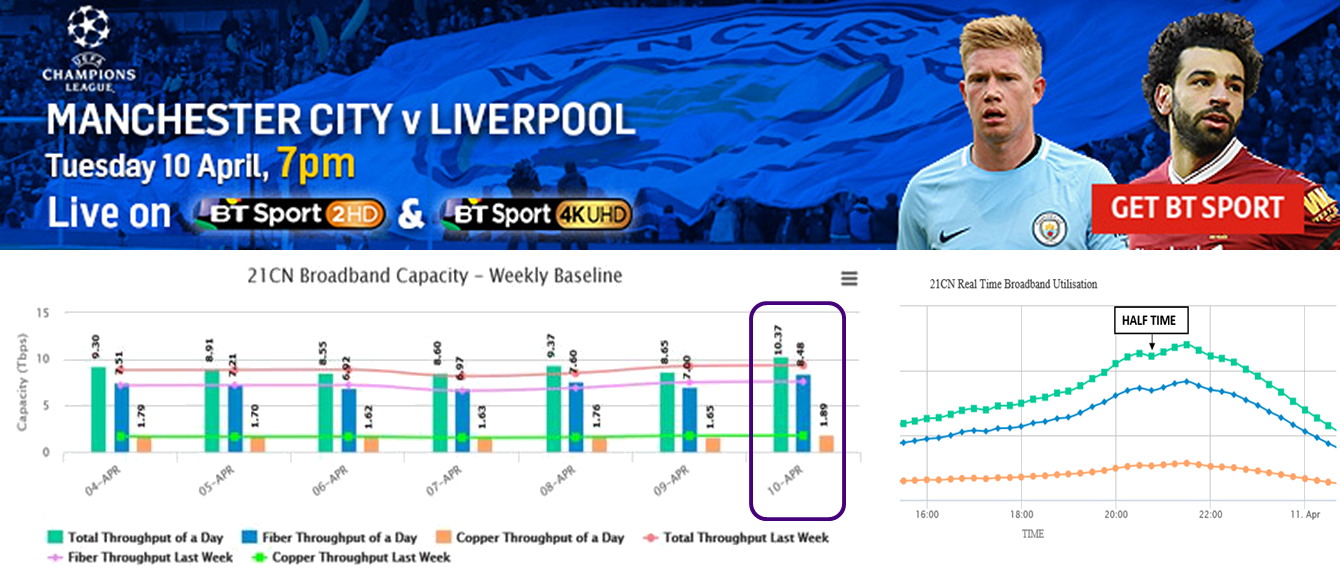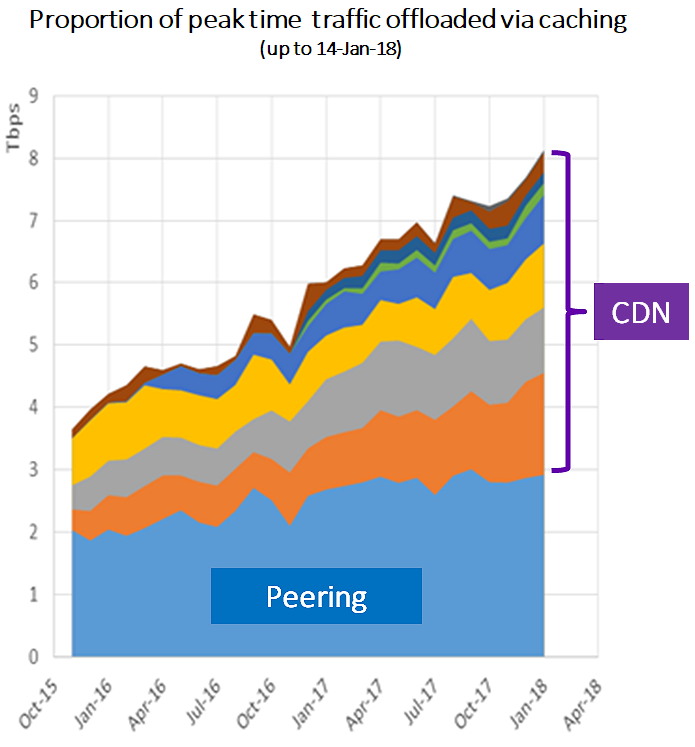BT Sees its UK Broadband ISP Traffic Peak at 10.37 Terabits in April
Customers of BT’s own retail broadband ISP business (around 9.4 million of them) recently hit a dramatic new level of internet data traffic after the network peaked at 10.37Tbps (Terabits per second), which occurred during the Manchester City vs Liverpool football game on 10th April 2018.
Like other ISPs BT are currently in the process of upgrading their core network in order to cope with the demands of new “ultrafast broadband” (100Mbps+) technologies, such as G.fast and FTTP. On top of that they also need to keep up with the strain on their capacity that stems from ever rising consumer internet usage, which tends to be dominated by online video content (iPlayer, Netflix, Amazon, BT TV, NOW TV, YouTube etc.).
As part of that Neil McRae, BT’s Chief Network Architect, revealed some details about their progress during a meeting of the UK Network Operators’ Forum (UKNOF) and you can access the related slides here. We believe that the above traffic figure reflects just fixed broadband and not their mobile network (EE) etc.
Advertisement

The other slides are probably only of use to those with an interest in the networking field (e.g. their current routing platform uses the Nokia 7950 XRS and can support 16Tbps per routing node), although they do reveal a few interesting bits of information about how much of BT’s retail traffic is handled by sophisticated Content Delivery Networks (CDN).
Caching content deeper in the network (at about 10 regional sites and 3 core locations) helps to offload around 60% of their core capacity and they also serve BT TV (Youview IPTV) content over multicast, which avoids an additional 1Tbps of traffic on the CDNs.

Mark is a professional technology writer, IT consultant and computer engineer from Dorset (England), he also founded ISPreview in 1999 and enjoys analysing the latest telecoms and broadband developments. Find me on X (Twitter), Mastodon, Facebook, BlueSky, Threads.net and Linkedin.
« High Court Rules Part of UK ISP Internet Snooping Law is Unlawful
Get Ready for Average Speeds in UK Broadband ISP Advertising »
















































Comments are closed